The Institute for Policy Integrity produces a variety of publications. Our research reports develop in-depth research on our core issues, while our policy briefs and issue briefs provide focused analysis on more timely or particular topics. Our academic articles and working papers offer original scholarly research and analysis from established experts as well as fresh new voices.
Latest Publications
-
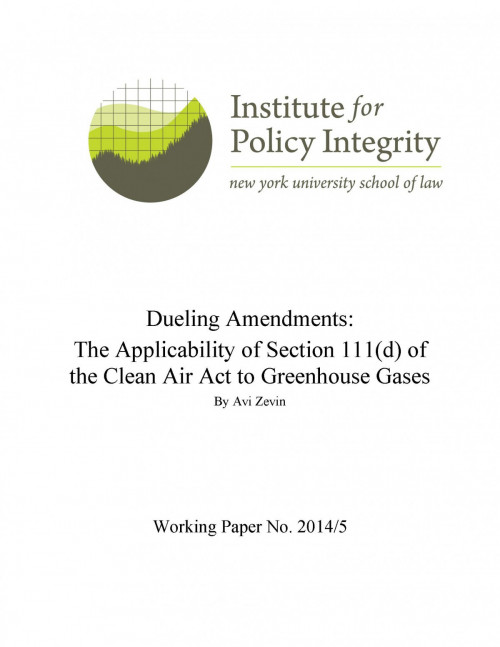
Dueling Amendments
The Applicability of Section 111(d) of the Clean Air Act to Greenhouse Gases
The United States Supreme Court determined that greenhouse gases (GHGs) were an “air pollutant” under the Clean Air Act in its ruling on Massachusetts v. EPA. The Environmental Protection Agency (EPA) has since taken steps to regulate GHGs under a rarely utilized provision of the Clean Air Act, section 111(d). Despite the text printed in the U.S. Code, the true text of section 111(d) is in doubt. This is because of a small but potentially significant legislating error that occurred during the creation of the 1990 Clean Air Act Amendments, when the Senate and House of Representatives made different revisions to section 111(d), both of which were passed by both houses of Congress and signed by the President. This paper analyzes whether the conflicting amendments to section 111(d) will prove to be a problem or an opportunity for EPA in its efforts to regulate GHGs.
This is a student working paper, and it does not necessarily represent the views of the Institute for Policy Integrity.
-
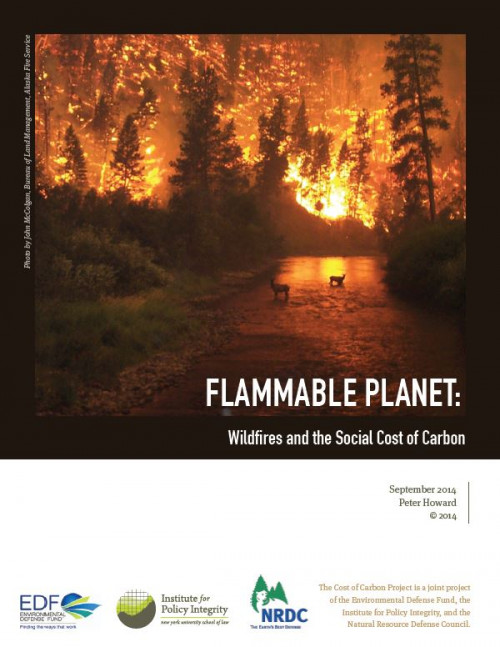
Flammable Planet: Wildfires and the Social Cost of Carbon
Climate change is expected to make wildfires more frequent and intense, with new areas facing wildfire risk. This could take a serious toll on the U.S. economy by expanding the area that wildfires burn 50 percent by 2050—and raising projected damages by tens of billions of dollars a year. Flammable Planet provides the first-ever estimate of the extent to which climate change will magnify the future economic costs of wildfires.
-
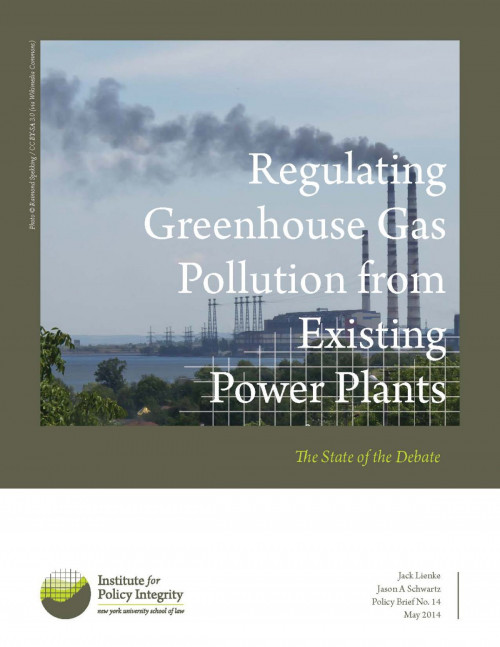
Regulating Greenhouse Gas Pollution from Existing Power Plants
The State of the Debate
Environmentalists, industry groups, and state governments have been vocal regarding their preferences for the shape of EPA’s forthcoming rule on greenhouse gas pollution from existing power plants. In this policy brief, Jack Lienke and Jason Schwartz survey 30 public letters, white papers, presentations, and reports from these stakeholders and outline their positions.
-
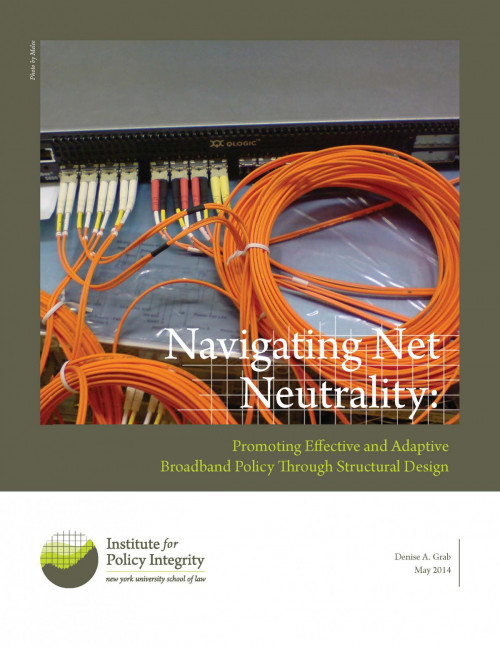
Navigating Net Neutrality
The Federal Communications Commission’s ability to protect the open Internet has been limited, due to recent court decisions. This report examines the regulatory options and recommends to FCC a course forward that will best promote the benefits of widespread Internet access.
-
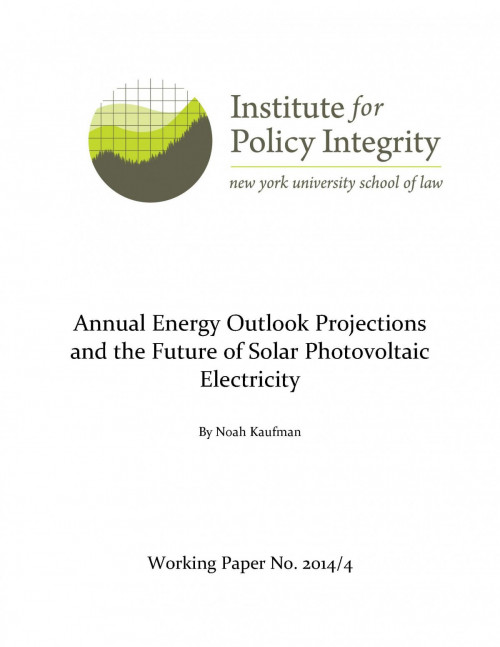
Annual Energy Outlook Projections and the Future of Solar PV Electricity
The topic of this paper is the assumed growth of solar photovoltaic (PV) in current energy models, with a focus on information from Annual Energy Outlook (AEO) of the U.S. Energy Information Administration (EIA). EIA resolves the difficulty of modeling solar energy into the future by assuming its current growth will not continue. However, EIA’s assumptions on the future costs of solar PV are highly pessimistic, and its methodology would appear to bias its “Reference Case” projections toward lower growth of solar energy. Sure enough, past AEOs have systematically underestimated the future growth of solar PV. Energy modelers therefore may need to adjust the AEO forecast in order to reflect a most likely baseline trajectory for solar PV.
